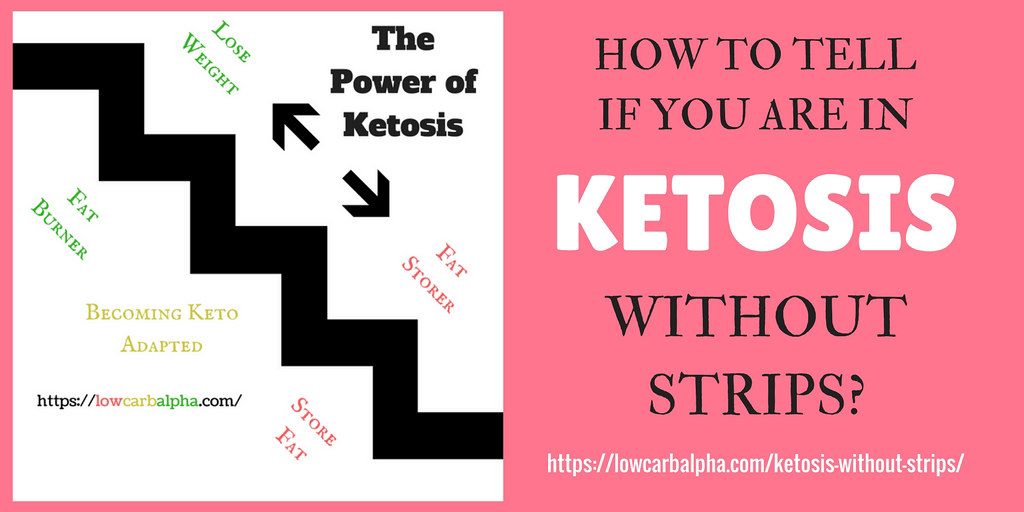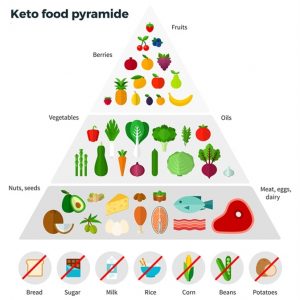You are one step away from unlocking the body’s natural fat burner. Know ketosis by name as it helps unlock the hidden power of your metabolism and put it to good use in burning that extra fat. With the secret of ketosis, you can put your body’s natural fat-burning engine into high gear and enjoy the many benefits of a healthy weight. Learn more about this powerful metabolic process and how to use it to your advantage.
Table of Contents
- 1. The Basics of Ketosis – Understanding How it Works
- 2. Exploring the Benefits of Ketosis
- 3. Eating the Right Foods to Achieve Ketosis
- 4. Using Ketosis for Weight Loss and Other Health Benefits
- 5. Keeping Your Body in Ketosis for Optimal Fat Burning
- Q&A

1. The Basics of Ketosis – Understanding How it Works
Ketosis is a metabolic state where your body burns fat for energy instead of glucose. It’s a process that usually kicks in during times of low food intake, such as fasting or low-carb dieting. When your body doesn’t have enough glucose, it turns to fats to produce molecules called ketone bodies, which can then be used by cells as fuel.
To enter ketosis, you need to lower your carbohydrate intake and ramp up your fat consumption. Lowering your carb intake to about 20-50 grams per day can push your body into ketosis. During ketosis, your body increases its fat breakdown and production of ketones, which will create an array of physiological and cognitive effects.
Consuming carbohydrates: Your intake of carbohydrates should be limited to around 20-50 grams per day in order to enter ketosis.Increasing fat consumption: Increasing your fat consumption is recommended when entering ketosis. Sources of healthy fats include avocados, eggs, and wild-caught fatty fish.Testing for ketosis: Testing your ketone levels is a good way to confirm your body is in a state of ketosis. Testing can be done with urine strips or a ketone meter.
2. Exploring the Benefits of Ketosis
If you’re looking for an effective way to improve your health and wellbeing, ketosis might be the perfect solution. Ketosis is a metabolic state in which your body is using fat rather than carbohydrates as the primary source of energy. There are several benefits associated with taking on a ketogenic diet, which has become one of the hottest health trends in the world.
One of the major benefits of a ketogenic diet is improved weight loss. Since your body is using fats to produce energy, following a keto meal plan can help you slim down by helping you burn those stubborn fat stores. Additionally, a high-fat diet helps you avoid hunger and regulate your blood sugar levels. Furthermore, ketosis has been linked to improved cognitive performance, increased energy levels, and reduced inflammation.
- Weight Loss: By helping you burn fat stores more efficiently, a keto diet can help you reduce excess body fat.
- Hunger Reduction: When you raise your fat intake, your brain becomes less reliant on sugar and glucose for energy, meaning your hunger levels become stabilized.
- Cognitive Enhancement: Increased cognitive performance has been observed in those who follow a keto meal plan.
- Lower Inflammation: Keto diets can reduce inflammation in the body, making it ideal for those with existing inflammatory conditions.
- Increased Energy: Not only does a ketogenic diet help you lose weight, but you may also experience improved energy levels as your body adapts to using fat for fuel.
3. Eating the Right Foods to Achieve Ketosis
Being on a ketogenic diet involves eating the right foods to achieve a state of ketosis. This means it’s important to eat healthy, nutritious foods in order to reach the desired state. Here are the essential foods to ensure success on a keto diet.
- Healthy Fats: Foods with a high-fat content, such as avocados, fish, nuts, and seeds are essential to the keto diet. The keto diet requires up to 80% of calories from fat, so you should make sure to balance your fat intake.
- Low Carb Vegetables: Low-carb vegetables, such as spinach, kale, broccoli, cauliflower, and zucchini are essential to the diet. Not only are they nutrient-rich, they are also low in calories so add bulk and satiety to the diet.
- Protein: Eating protein in moderation is key to the keto diet. Protein sources such as fish, egg whites, and lean meats are good sources of protein, but take care to ensure not to overdo it as too much protein can kick you out of ketosis.
In order to succeed with the keto diet, focus on eating the right foods. Eating the wrong foods can easily take you out of ketosis, so stay mindful of what you’re eating. A well-balanced, nutritious diet should keep you in a state of ketosis for long-term success.
4. Using Ketosis for Weight Loss and Other Health Benefits
Ketosis is a metabolic process that occurs when the body does not have enough glucose for energy and instead burns fat stores. Many dieters have long used the technique to help them reach their goal weight, but if you’re considering using it for weight loss, there are a few things to keep in mind.
Health Benefits: As our bodies are adapting to this new way of fuel, it opens up the possibility for other positive changes.
- It contributes to the well-being of brain health and improved mental clarity – due to the protective agents produced when fat is broken down.
- A healthier blood sugar level as our bodies are no longer relying on sugar, but instead are using the healthy fats to produce energy.
- Increase in energy level as your mind is clear of the fog that’s usually caused by high sugar diet.
- Improved cholesterol levels, better metabolic rate and improved respiratory health are reported.
It’s important to do your research before trying ketosis. Speak to a doctor or nutritionist to ensure that it is the right method for your particular diet and lifestyle, as it’s not suitable for everyone. Although it is a safe and effective method of weight loss and offers health benefits, it should always be done with caution and with professional support.
5. Keeping Your Body in Ketosis for Optimal Fat Burning
As anyone on a ketogenic diet knows, staying in ketosis for optimal fat burning is no simple task. With persistency and a few key strategies, you can keep your body in ketosis for long-term fat-burning benefits.
Here’s how:
- Get your macros right. Tracking and adjusting the amounts of fat, carbs and protein you consume can guarantee that you are in a steady state of ketosis.
- Develop a practice of intermittent fasting. Adjusting your eating windows to either a 16:8 or even longer fasting window helps to boost the fat-burning process and keep your body in ketosis.
- Reduce your intake of non-nutritive sweeteners and sugar alcohols. Cutting out popular sweeteners such as aspartame, maltodextrin and xylitol is a great way to get rid of excess carbs and stimulate a fat-burning state.
- Test your ketone levels. Using a breathalyzer or ketone test strips is a surefire way to determine your exact state of ketosis.
Following these strategies, you can keep your metabolism in a fat-burning mode and take full advantage of the myriad of benefits the ketogenic diet has to offer. Try these tips for lasting success and enjoy the transformation!
If you’re looking for a natural process that your body already uses to burn fat, look no further than ketosis. Make sure to do your research, consult with your physician, and create a plan that works for you, and you will be well on your way to reaching your body goals!











